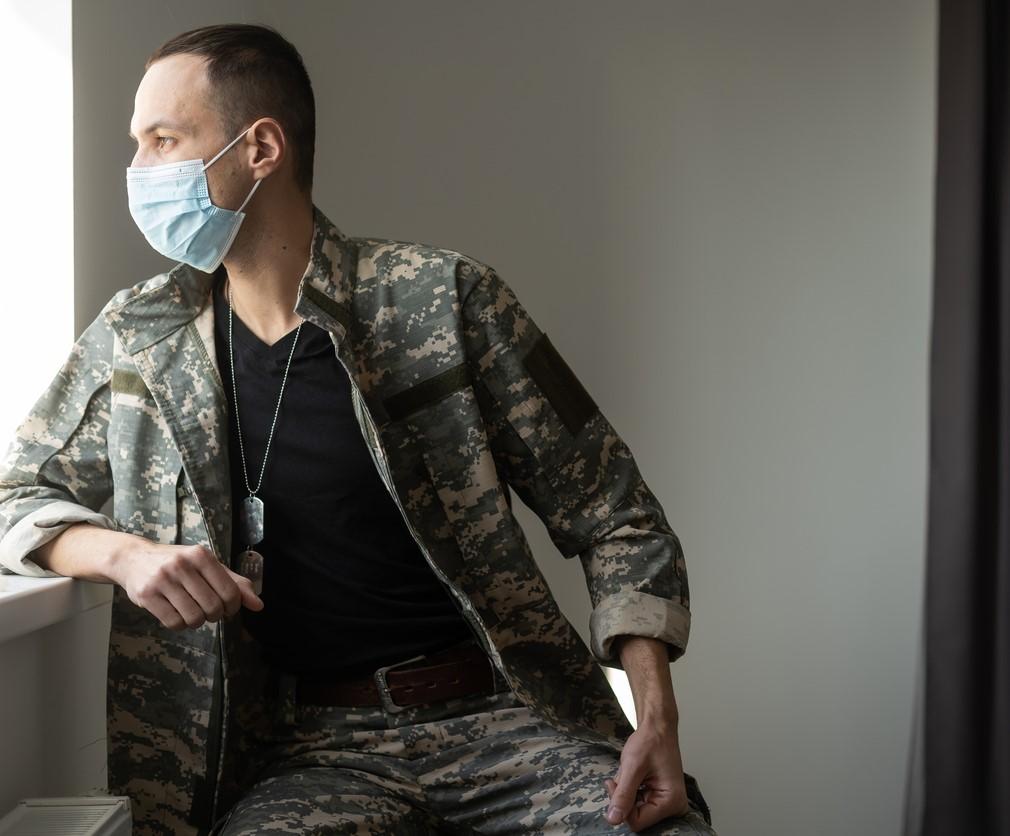Long COVID-19 symptoms can affect even fully vaccinated people after mild breakthrough infections, but their risk of serious complications such as lung and blood-clotting disorders is much lower than that of their unvaccinated peers, finds a study of more than 13 million US veterans published this week in Nature Medicine.
Researchers from Washington University and the VA Saint Louis Health Care System extracted data from US Department of Veterans Affairs (VA) databases on 33,940 veterans who had mild COVID-19 from Jan 1 to Oct 31, 2021, after receiving two doses of the Pfizer/BioNTech or Moderna vaccines or one dose of the Johnson & Johnson vaccine.
They were compared with 4,983,491 contemporary unvaccinated and uninfected controls, 5,785,273 historical controls, and 2,566,369 vaccinated controls. The study period preceded the emergence of the Omicron variant.
Veterans diagnosed as having COVID-19 were mostly older, White men, but the study also included more than 1.3 million women and adults of all ages and races.
Most protective against lung disorders, blood clots
Relative to the 113,474 infected, unvaccinated veterans, those who were vaccinated and then infected were at lower risk for death (hazard ratio [HR], 0.66; 95% CI, 0.58 to 0.74) and long-term symptoms (HR, 0.85; 95% confidence interval [CI], 0.82 to 0.89).
The risk of long COVID was 17% higher among vaccinated, immunocompromised people who later tested positive for COVID-19, relative to healthy, vaccinated, infected veterans. An analysis of 3,667 vaccinated veterans hospitalized for their infections found that they were at 2.5 times the risk for death and a 27% higher risk of long COVID within 30 days of symptom onset than 14,337 peers hospitalized with the flu.
"Vaccination against the virus that causes COVID-19 reduced the risk of death by 34% and the risk of getting long COVID by 15%, compared with unvaccinated patients infected with the virus," the study authors wrote. "However, vaccines were shown to be most effective in preventing some of the most worrisome manifestations of long COVID—lung and blood-clotting disorders—which declined about 49% and 56%, respectively, among those who were vaccinated."
Compared with uninfected contemporary controls, veterans who tested positive for COVID-19 after vaccination faced a higher risk of death after the first 30 days of illness (HR, 1.75; 95% CI, 1.59 to 1.93). They also were at higher risk for persistent symptoms (HR, 1.50; 95% CI, 1.46 to 1.54), including cardiovascular, blood-clotting and hematologic, gastrointestinal, kidney, mental, metabolic, musculoskeletal, and neurologic disorders.
Only part of the solution
Vaccination remains critically important in the battle against COVID-19 but is only part of the solution, first author Ziyad Al-Aly, MD, said in a Washington University news release.
"Vaccinations reduce the risk of hospitalization and dying from COVID-19," he said. "But vaccines seem to only provide modest protection against long COVID. People recovering from breakthrough COVID-19 infection should continue to monitor their health and see a health-care provider if lingering symptoms make it difficult to carry out daily activities."
Al-Aly noted that an estimated 8% to 12% of vaccinated people test positive for COVID-19. "Our current approach will likely leave a large number of people with chronic and potentially disabling conditions that have no treatments," he said. "This will not only affect people’s health, but their ability to work, life expectancy, economic productivity and societal well-being."
He called for the implementation of sustainable long-COVID risk-reduction strategies such as nasal vaccines that are more convenient or potent than the currently available versions and other types of vaccines or drugs.





















